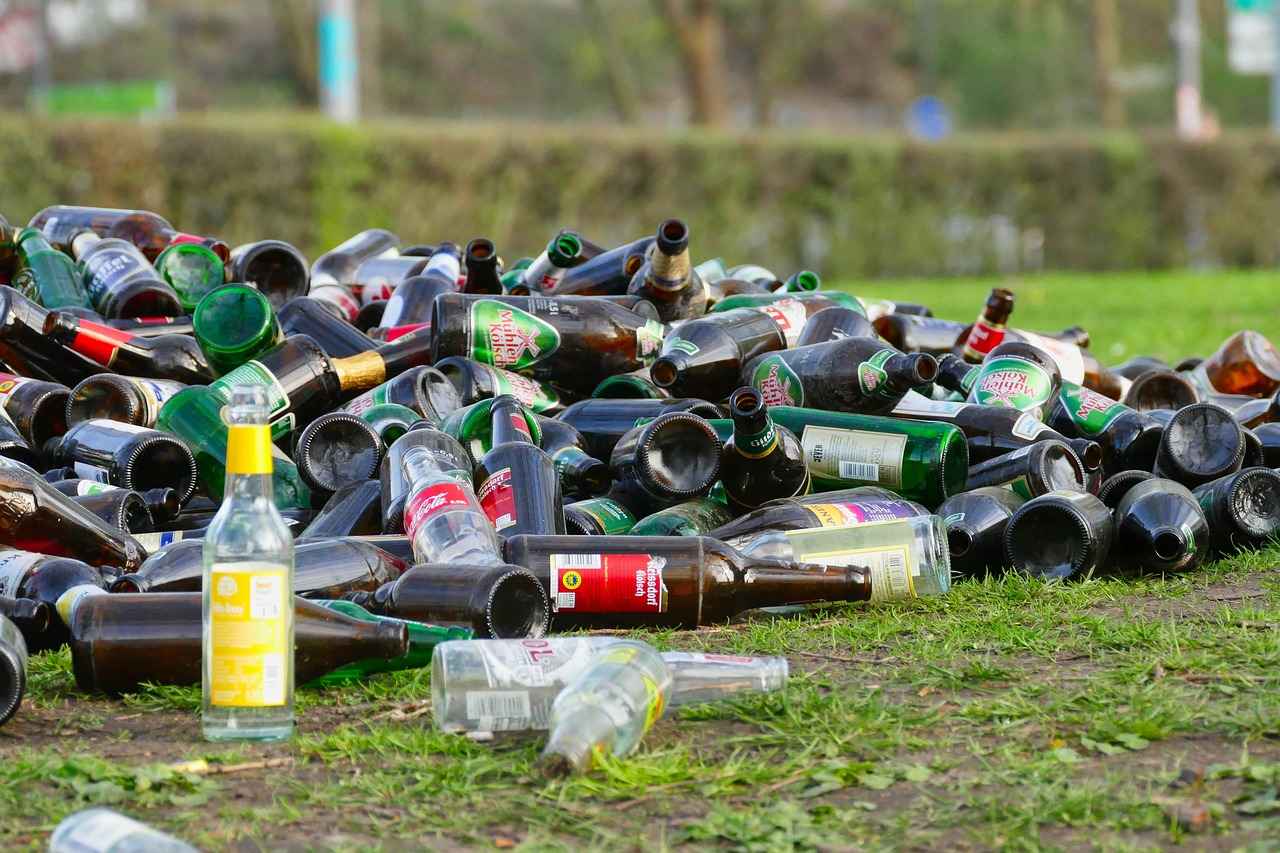This article delves into the top mortgage loan lenders that specifically cater to first-time homebuyers. Understanding the lending landscape is crucial for making informed decisions. We will provide insights into their unique offerings, requirements, and tips on selecting the best lender to suit your needs.
Understanding Mortgage Loans
Mortgage loans serve as a vital tool for first-time homebuyers, enabling them to finance their home purchases. A mortgage is essentially a loan secured by the property itself, which means if the borrower fails to repay, the lender can reclaim the property. There are various types of mortgage loans available, including fixed-rate, adjustable-rate, and government-backed options, each with its own benefits and drawbacks.
Key Factors to Consider When Choosing a Lender
- Interest Rates: These significantly affect your monthly payment and overall loan cost.
- Fees: Understanding the various fees associated with loans, such as origination and closing costs, is essential.
- Customer Service: Good customer support can make the mortgage process smoother.
- Loan Types: Familiarize yourself with the different loan products that lenders offer.
Interest Rates and Fees
The interest rate is a critical element that influences how much you will pay over the life of the loan. Different lenders may offer varying rates, which can change based on market conditions and borrower qualifications. Additionally, fees can vary widely, so it’s important to compare offers meticulously.
Customer Service and Support
For first-time homebuyers, having a lender that provides excellent customer service is invaluable. This support can guide you through the complexities of the mortgage process, making it less intimidating and more manageable.
Top Mortgage Lenders for First-Time Homebuyers
- Quicken Loans: Known for its user-friendly online platform, Quicken Loans offers a variety of loan options and boasts high customer satisfaction ratings.
- Wells Fargo: With a range of mortgage products tailored for first-time buyers, Wells Fargo is a solid choice, providing specific programs and benefits designed to assist new homeowners.
Government-Backed Loan Programs
Government-backed loans, such as FHA, VA, and USDA loans, can provide significant advantages for first-time homebuyers. These loans often come with lower down payment requirements and more flexible credit score standards.
How to Apply for a Mortgage
- Gathering Necessary Documents: Essential documentation includes proof of income, credit history, and identification.
- Pre-Approval Process: Getting pre-approved for a mortgage can enhance your buying power and streamline the homebuying experience.

Understanding Mortgage Loans
Mortgage loans are essential financial tools for first-time homebuyers, providing the necessary funding to purchase a home. A mortgage loan is essentially a loan specifically designed for buying real estate, where the property itself serves as collateral. This means that if the borrower fails to make payments, the lender can take possession of the property through foreclosure.
There are several types of mortgage loans, each catering to different financial situations and needs:
- Fixed-Rate Mortgages: These loans have a consistent interest rate throughout the life of the loan, making monthly payments predictable. They are ideal for buyers who plan to stay in their homes for a long time.
- Adjustable-Rate Mortgages (ARMs): With ARMs, the interest rate is initially lower but can change over time based on market conditions. These are suitable for those who may sell or refinance before the rate adjusts.
- Government-Backed Loans: Programs such as FHA, VA, and USDA loans offer favorable terms for first-time buyers, including lower down payments and reduced credit requirements.
Understanding why mortgage loans are important for home purchasing is crucial. For many, a mortgage is the only feasible way to afford a home, as it allows buyers to spread the cost over many years. Additionally, making timely mortgage payments can help build equity, which is the difference between the home’s market value and the remaining loan balance. This equity can be a valuable asset for future financial needs.
In summary, grasping the fundamentals of mortgage loans, including their types and significance, is vital for first-time homebuyers. With the right knowledge, buyers can make informed decisions that align with their financial goals.

Key Factors to Consider When Choosing a Lender
Selecting a mortgage lender is a pivotal step for any first-time homebuyer. With a myriad of options available, understanding the key factors involved in this decision can significantly impact your home-buying experience. This section delves into essential elements such as interest rates, fees, customer service, and loan types, providing a comprehensive overview to assist buyers in making informed choices.
- Interest Rates: One of the most critical aspects of choosing a lender is the interest rate offered. A lower interest rate can lead to substantial savings over the life of the loan. It’s essential to compare rates from various lenders and understand how these rates are determined. Factors such as your credit score, loan amount, and the type of loan can influence the rates you receive.
- Fees: Beyond interest rates, lenders often charge various fees that can add to the overall cost of the mortgage. These may include origination fees, application fees, and closing costs. Buyers should request a detailed breakdown of these fees and compare them across different lenders to avoid unexpected expenses.
- Customer Service: The level of customer service provided by a lender can greatly affect your mortgage experience. First-time homebuyers may have numerous questions and require guidance throughout the process. Researching reviews and ratings for customer service can help you choose a lender who prioritizes support and communication.
- Loan Types: Different lenders offer various loan types, including fixed-rate, adjustable-rate, and government-backed loans. Understanding the differences and benefits of each type is crucial. For instance, fixed-rate loans provide stability in monthly payments, while adjustable-rate loans may offer lower initial rates but can fluctuate over time.
By carefully considering these factors, buyers can navigate the mortgage landscape more effectively and select a lender that aligns with their financial goals and needs.
Interest Rates and Fees
Interest rates play a pivotal role in determining the monthly payments that homebuyers will face when securing a mortgage. Understanding how these rates are set and the associated fees can significantly affect your financial planning.
Mortgage lenders typically establish their interest rates based on a variety of factors, including the current economic climate, the borrower’s credit score, and the overall risk involved in lending. For instance, borrowers with higher credit scores often qualify for lower interest rates, which can lead to substantial savings over the life of the loan.
In addition to interest rates, it is essential to consider the various fees that lenders may charge. These can include:
- Origination Fees: These are charges for processing the loan application.
- Underwriting Fees: Costs associated with evaluating the borrower’s creditworthiness.
- Discount Points: Fees paid upfront to lower the interest rate.
- Closing Costs: Various fees that occur at the closing of a real estate transaction, which can include appraisal fees, title insurance, and attorney fees.
When comparing lenders, it is crucial to look beyond just the interest rate. A lender offering a seemingly low rate might compensate by charging higher fees. Therefore, it is advisable to request a Loan Estimate from each lender, which outlines the interest rate, monthly payment, and all associated fees. This document enables you to make a more informed comparison.
Moreover, understanding the difference between fixed-rate and adjustable-rate mortgages can also impact your decision. Fixed-rate mortgages provide stability with consistent payments, while adjustable-rate mortgages may offer lower initial rates but can fluctuate over time.
In summary, being well-informed about interest rates and associated fees is crucial for first-time homebuyers. By conducting thorough research and comparing different lenders, you can find a mortgage that best fits your financial situation.
Fixed vs. Adjustable Rates
When it comes to securing a mortgage, understanding the differences between fixed-rate and adjustable-rate mortgages is crucial for first-time homebuyers. Each type of mortgage offers distinct advantages and disadvantages that can significantly impact your financial future.
A fixed-rate mortgage is characterized by a constant interest rate throughout the life of the loan. This means that your monthly payments remain the same, providing a sense of stability and predictability. One of the primary advantages of a fixed-rate mortgage is long-term budgeting; homeowners can plan their finances without worrying about fluctuating interest rates. Additionally, if market rates increase, your fixed rate remains unchanged, potentially saving you money in the long run.
However, fixed-rate mortgages often come with higher initial interest rates compared to adjustable-rate options. This can result in higher monthly payments, which may be a barrier for some first-time buyers. Furthermore, if you plan to move or refinance within a few years, you might not benefit from the long-term stability that fixed rates offer.
On the other hand, an adjustable-rate mortgage (ARM) features an interest rate that can change periodically based on market conditions. Typically, ARMs start with a lower initial rate, making them appealing for buyers looking to minimize their upfront costs. This can be advantageous for those who plan to sell or refinance before the adjustable period kicks in.
However, the downside of ARMs is the potential for rising costs. As interest rates adjust, monthly payments can increase significantly, leading to financial strain if rates rise sharply. It’s essential for buyers to understand the terms of their ARM, including how often rates adjust and any caps on increases.
In conclusion, the choice between a fixed-rate and adjustable-rate mortgage depends on individual financial situations and future plans. Evaluating your long-term goals and risk tolerance can help you make an informed decision that aligns with your homeownership aspirations.
Closing Costs Explained
When purchasing a home, closing costs can be a significant factor to consider. These costs encompass various fees and expenses that buyers must pay at the closing of a real estate transaction. Understanding what these costs entail and how they can vary between lenders is crucial for first-time homebuyers.
What Are Closing Costs? Closing costs typically include a range of fees associated with finalizing a mortgage. These may cover:
- Loan Origination Fees: Charged by the lender for processing the loan.
- Appraisal Fees: To determine the property’s market value.
- Title Insurance: Protects against any issues with the property’s title.
- Inspection Fees: For home inspections to identify potential problems.
- Prepaid Taxes and Insurance: Often required to cover future payments upfront.
- Recording Fees: Charged by the government to record the property transfer.
The total amount of closing costs can vary significantly based on several factors, including the location of the property, the loan amount, and the lender’s policies. On average, closing costs can range from 2% to 5% of the home’s purchase price.
How Do Closing Costs Vary Between Lenders? Different lenders may have varying fees and structures for closing costs. Some lenders may offer lower origination fees but charge higher rates for other services, while others might provide a more straightforward fee structure. It is essential for buyers to compare offers from multiple lenders to understand the total closing costs associated with each mortgage option.
Additionally, some lenders may offer closing cost assistance programs or allow buyers to negotiate certain fees. First-time homebuyers should inquire about these options to potentially reduce their overall expenses.
In summary, understanding and budgeting for closing costs is a vital part of the homebuying process. By being informed about what these costs entail and how they can differ between lenders, buyers can make more educated decisions and prepare for a smoother closing experience.
Customer Service and Support
Customer service plays a crucial role in the experience of first-time homebuyers navigating the complex world of mortgage loans. For many, this is an unfamiliar journey filled with questions and uncertainties. Lenders who prioritize customer support can significantly ease this process, making it essential for buyers to evaluate the level of assistance they can expect.
Throughout the mortgage process, lenders provide various forms of support, including personalized guidance and comprehensive resources. Many lenders offer dedicated loan officers who are available to answer questions, provide updates, and assist with documentation. This personal touch can help demystify the process and give buyers confidence in their decisions.
Additionally, some lenders provide online tools and resources, such as mortgage calculators, educational articles, and FAQs, to empower buyers with knowledge. These resources can help first-time homebuyers understand their options, assess their financial situation, and prepare for the responsibilities of homeownership.
Moreover, effective communication is a hallmark of excellent customer service. Lenders who maintain open lines of communication, whether through phone, email, or chat, ensure that buyers feel supported throughout the entire mortgage process. This accessibility allows buyers to address concerns promptly and reduces the stress associated with home financing.
Furthermore, many lenders are now incorporating technology into their customer service strategies. For instance, mobile apps can provide real-time updates on loan status and allow buyers to upload documents easily. This technological integration enhances the overall experience and keeps buyers informed at every stage.
In summary, customer service is not just an added benefit; it is a vital component of the mortgage process for first-time homebuyers. By choosing a lender that emphasizes support and communication, buyers can navigate their mortgage journey with greater ease and confidence.

Top Mortgage Lenders for First-Time Homebuyers
When it comes to purchasing your first home, selecting the right mortgage lender is crucial. This section focuses on the top mortgage lenders that offer favorable terms and exceptional support specifically designed for first-time homebuyers. Understanding the offerings of these lenders can make a significant difference in your homebuying experience.
- Quicken Loans: Known for its user-friendly online platform, Quicken Loans provides a variety of mortgage options. Their streamlined application process and robust customer support make them a popular choice among first-time buyers. With competitive interest rates and a commitment to transparency, Quicken Loans simplifies the journey to homeownership.
- Wells Fargo: As one of the largest mortgage lenders in the U.S., Wells Fargo offers a wide range of mortgage products tailored for first-time homebuyers. Their specialized programs, such as the Wells Fargo Home Mortgage, feature low down payment options and flexible credit requirements, making it easier for new buyers to qualify.
- Bank of America: This lender provides various resources and programs aimed at first-time buyers. Their Affordable Home Program offers down payment assistance and lower mortgage insurance costs, which can be particularly beneficial for those entering the housing market for the first time.
- Chase: Chase is known for its comprehensive suite of mortgage options, including fixed-rate and adjustable-rate mortgages. They also provide a personalized approach to customer service, helping first-time buyers navigate the complexities of the mortgage process.
- USAA: For eligible military members and their families, USAA offers competitive mortgage rates and unique benefits. Their commitment to serving the military community makes them an excellent choice for first-time buyers in this demographic.
Each of these lenders brings unique advantages to the table, catering specifically to the needs of first-time homebuyers. When choosing a lender, it is essential to consider factors such as interest rates, loan types, and the level of customer support provided. By carefully evaluating these options, you can find a mortgage lender that aligns with your financial goals and homeownership aspirations.
Quicken Loans
stands out in the mortgage industry for its user-friendly online platform, making it a popular choice among first-time homebuyers. This lender offers a variety of loan options tailored to meet the specific needs of new buyers, ensuring that the process is as smooth and straightforward as possible.
One of the key features of Quicken Loans is its Rocket Mortgage service, which allows potential borrowers to apply for a mortgage entirely online. This innovative platform simplifies the application process by providing real-time updates and personalized loan options based on the user’s financial situation. With just a few clicks, users can obtain pre-approval, making it easier to shop for homes with confidence.
In terms of loan options, Quicken Loans provides a range of products including fixed-rate mortgages, adjustable-rate mortgages (ARMs), and government-backed loans such as FHA and VA loans. Each option comes with its own set of benefits, allowing first-time buyers to choose the one that best fits their financial profile.
When it comes to customer service, Quicken Loans has consistently received high ratings from its clients. The company offers 24/7 support through various channels, including phone, chat, and email. This commitment to customer service ensures that borrowers have access to assistance whenever they need it, which is particularly important during the often stressful homebuying process.
Additionally, Quicken Loans provides a wealth of educational resources on its website, including articles, calculators, and FAQs that help demystify the mortgage process for first-time buyers. This focus on education empowers customers to make informed decisions, further enhancing their experience.
Overall, Quicken Loans combines a robust online platform with excellent customer service and diverse loan options, making it a top contender for first-time homebuyers seeking a seamless mortgage experience.
Wells Fargo
stands out as a prominent lender in the mortgage market, especially for first-time homebuyers. With a variety of mortgage products designed to meet the unique needs of new buyers, Wells Fargo aims to simplify the home purchasing process. This section delves into their specific programs and the benefits they offer.
One of the notable programs available is the Wells Fargo Home Mortgage option, which provides flexible financing solutions. This program features competitive interest rates and down payment options as low as 3%. This makes it accessible for first-time buyers who may not have substantial savings. Additionally, Wells Fargo offers a Homebuyer Education Course, which equips buyers with essential knowledge about the home buying process, helping them make informed decisions.
Another significant offering is the Wells Fargo YourFirst Mortgage, specifically tailored for first-time buyers. This program allows for lower down payments and provides the opportunity for gift funds to be used toward the down payment, making homeownership more achievable. Furthermore, this program does not require private mortgage insurance (PMI) for loans with less than 20% down, which can significantly reduce monthly payments.
| Program | Key Benefits |
|---|---|
| Home Mortgage | 3% down payment, competitive rates, homebuyer education |
| YourFirst Mortgage | Low down payment, no PMI, gift funds accepted |
Moreover, Wells Fargo provides personalized support through its dedicated loan officers, who guide first-time buyers through each step of the mortgage process. This level of customer service is crucial for new homeowners who may feel overwhelmed by the complexities of obtaining a mortgage.
In summary, Wells Fargo offers a range of mortgage products specifically designed for first-time buyers, making it easier for them to enter the housing market. With flexible financing options, educational resources, and dedicated support, Wells Fargo is a strong contender for those looking to purchase their first home.

Government-Backed Loan Programs
Government-backed loans are designed to assist first-time homebuyers in overcoming financial barriers associated with purchasing a home. These loans come with unique features and benefits that can make homeownership more accessible for those who qualify. In this section, we will explore three primary types of government-backed loans: FHA, VA, and USDA loans.
FHA loans are backed by the Federal Housing Administration and are particularly appealing to first-time homebuyers due to their lower down payment requirements, which can be as low as 3.5%. This makes it easier for buyers with limited savings to enter the housing market. Additionally, FHA loans have more lenient credit score requirements, allowing individuals with less-than-perfect credit to qualify. The loan limits vary by region, ensuring that buyers across the country have access to this financing option.
VA loans are specifically designed for veterans, active-duty service members, and certain members of the National Guard and Reserves. One of the most significant advantages of VA loans is that they do not require a down payment, making homeownership more attainable for those who have served in the military. Additionally, VA loans come with competitive interest rates and do not require private mortgage insurance (PMI), which can save borrowers a substantial amount of money over time. Eligibility is determined by service length and discharge status, making it crucial for applicants to understand their qualifications.
USDA loans are backed by the United States Department of Agriculture and are aimed at promoting homeownership in rural and suburban areas. These loans offer 100% financing, meaning no down payment is required, which is a significant benefit for first-time homebuyers. To qualify, applicants must meet specific income requirements and the property must be located in an eligible rural area. USDA loans also feature low mortgage insurance premiums, making them an attractive option for those looking to buy a home in less populated regions.
In summary, government-backed loans such as FHA, VA, and USDA loans provide first-time homebuyers with various options to make homeownership more achievable. By understanding the features and benefits of each loan type, buyers can make informed decisions that align with their financial situations and homeownership goals.
FHA Loans
are a popular choice for many first-time homebuyers due to their lower down payment requirements and flexible credit standards. These loans are backed by the Federal Housing Administration, making them an attractive option for those who may not have substantial savings or a perfect credit score.
To qualify for an FHA loan, borrowers must meet specific eligibility criteria. Generally, applicants need to have a credit score of at least 580 to qualify for the minimum down payment of 3.5%. However, those with credit scores between 500 and 579 may still qualify but will need to make a 10% down payment. Additionally, borrowers must demonstrate a steady employment history and a manageable level of debt.
The application process for an FHA loan involves several key steps:
- Pre-Approval: Start by getting pre-approved to understand how much you can borrow. This involves providing your lender with financial information, including income, debts, and credit history.
- Choosing a Lender: Select a lender who is approved to offer FHA loans. Compare their rates, fees, and customer service to find the best fit for your needs.
- Submitting Your Application: Complete the loan application and submit all required documentation, including pay stubs, tax returns, and bank statements.
- Home Appraisal: The lender will require an appraisal to determine the home’s value, ensuring it meets FHA standards.
- Closing: Once approved, you will attend a closing meeting to finalize the loan and take possession of your new home.
Overall, FHA loans provide an excellent opportunity for first-time buyers to enter the housing market with affordable financing options. Understanding the eligibility requirements and application process can significantly enhance your chances of securing a loan that fits your financial situation.
VA Loans
VA loans are a remarkable financial benefit designed specifically for veterans and active military personnel. These loans are backed by the U.S. Department of Veterans Affairs, making them a viable option for those who have served our country. In this section, we will delve into the eligibility requirements and the numerous advantages that VA loans offer.
Eligibility Requirements for VA Loans
- Service Length: Generally, veterans must have served a minimum period, typically 90 days of active duty during wartime or 181 days during peacetime.
- Discharge Status: A veteran must have an honorable discharge to qualify for a VA loan.
- Credit Score: While there is no minimum credit score requirement, most lenders prefer a score of at least 620.
- Certificate of Eligibility (COE): Applicants must obtain a COE from the VA to demonstrate their eligibility.
Advantages of VA Loans
VA loans come with several distinct benefits that set them apart from conventional mortgage options:
- No Down Payment: One of the most significant advantages is the ability to finance 100% of the home’s value, eliminating the need for a down payment.
- No Private Mortgage Insurance (PMI): Unlike many conventional loans, VA loans do not require PMI, which can save borrowers a substantial amount monthly.
- Competitive Interest Rates: VA loans often come with lower interest rates compared to traditional loans, making monthly payments more manageable.
- Flexible Credit Requirements: VA loans are more lenient with credit scores, allowing more veterans to qualify.
- Assumable Loans: If you sell your home, the buyer can assume your VA loan, which can be an attractive selling point.
In summary, VA loans offer unique financial advantages that can significantly ease the homebuying process for veterans and active military personnel. Understanding these benefits and eligibility requirements can empower service members to make informed decisions regarding their home financing options.

How to Apply for a Mortgage
Applying for a mortgage can seem daunting, especially for first-time homebuyers. However, understanding the application process can make it significantly easier. This section provides a step-by-step guide on how to navigate the mortgage application process effectively, ensuring that you are well-prepared and informed.
- Step 1: Assess Your Financial Situation
Before you begin the application, evaluate your financial health. This includes checking your credit score, understanding your debt-to-income ratio, and determining how much you can afford to borrow. A good credit score can lead to better interest rates.
- Step 2: Gather Necessary Documents
Proper documentation is crucial for a smooth application process. Essential documents typically include:
- Proof of income (pay stubs, tax returns)
- Bank statements
- Identification (driver’s license, Social Security number)
- Employment verification
- Step 3: Research Lenders and Loan Options
Different lenders offer various mortgage products. Researching options such as fixed-rate and adjustable-rate mortgages can help you find the best fit for your financial situation. Pay attention to interest rates, fees, and customer reviews.
- Step 4: Get Pre-Approved
Obtaining pre-approval can strengthen your position as a buyer. This process involves a lender evaluating your financial information to determine how much they are willing to lend you. A pre-approval letter shows sellers that you are a serious buyer.
- Step 5: Complete the Application
Once you have chosen a lender, you will need to fill out a mortgage application. This can often be done online. Be prepared to provide detailed information about your financial situation and the property you wish to purchase.
- Step 6: Undergo the Approval Process
After submitting your application, the lender will review your information and may request additional documentation. This process can take several weeks, so patience is key.
- Step 7: Closing the Loan
Once approved, you will move to the closing stage. This involves signing various documents and paying any closing costs. After everything is finalized, you will receive the keys to your new home!
By following these steps, you can navigate the mortgage application process with confidence, making your journey to homeownership much smoother.
Gathering Necessary Documents
When embarking on the journey to secure a mortgage, gathering the necessary documents is a critical step that can significantly influence the success and speed of your application. Proper documentation not only facilitates a smoother process but also helps in building trust and credibility with lenders. Below, we outline the essential documents required for a mortgage application.
- Proof of Income: Lenders need to verify your income to assess your ability to repay the loan. This typically includes recent pay stubs, W-2 forms from the last two years, and possibly tax returns if you’re self-employed.
- Credit History: A good credit score is vital for obtaining favorable mortgage terms. Lenders will review your credit report, so it’s wise to check it beforehand and resolve any discrepancies.
- Employment Verification: A letter from your employer confirming your position and salary can strengthen your application. This document reassures lenders of your job stability.
- Asset Statements: Providing bank statements and proof of other assets, such as retirement accounts or investments, demonstrates your financial health and ability to cover down payments and closing costs.
- Identification: A government-issued ID, such as a driver’s license or passport, is required to confirm your identity.
Additionally, some lenders may request:
- Gift Letters: If part of your down payment is a gift, a letter from the donor stating that the funds are a gift and not a loan may be necessary.
- Purchase Agreement: Once you have an accepted offer on a property, the purchase agreement will be required to finalize the mortgage application.
By ensuring you have all these documents ready, you can help streamline the mortgage application process and improve your chances of approval. Remember, being organized and prepared is key to a successful homebuying experience.
Pre-Approval Process
Getting pre-approved for a mortgage is a significant step in the homebuying journey. It not only streamlines the process but also enhances your credibility as a buyer. In this section, we will delve into what pre-approval entails, its importance, and how it can positively impact your home search.
What is Mortgage Pre-Approval? Pre-approval is a formal evaluation by a lender that determines how much money you can borrow based on your financial situation. Unlike pre-qualification, which is an informal estimate, pre-approval involves a thorough review of your financial history, including your credit score, income, and existing debts. This process results in a pre-approval letter, which states the maximum loan amount the lender is willing to offer you.
Why is Pre-Approval Important? Obtaining a pre-approval can significantly strengthen your position in the competitive real estate market. Here are some key reasons:
- Increased Credibility: Sellers are more likely to take your offers seriously when they see that you have been pre-approved. It shows that you are a serious buyer with the financial capability to follow through.
- Better Negotiation Power: With a pre-approval letter in hand, you can negotiate more effectively. Sellers may be more willing to consider your offer, especially in multiple-offer situations.
- Clear Budgeting: Knowing how much you can borrow helps you set a realistic budget for your home search. This prevents you from falling in love with a property that is beyond your financial reach.
How to Get Pre-Approved The pre-approval process typically involves the following steps:
- Gather Necessary Documents: Prepare your financial documents, including pay stubs, tax returns, and bank statements.
- Submit Application: Complete the lender’s application form, providing all requested information accurately.
- Credit Check: The lender will perform a credit check to assess your financial reliability.
- Receive Pre-Approval Letter: If approved, you will receive a letter outlining your loan amount, which you can present to sellers.
In conclusion, securing a pre-approval is a crucial step that can significantly enhance your homebuying experience. It provides clarity, confidence, and a competitive edge in the market.
Frequently Asked Questions
- What is a mortgage loan?
A mortgage loan is a type of loan specifically used to purchase a home. It is secured by the property itself, meaning if you fail to make payments, the lender can take possession of the home.
- How do I choose the right lender?
Choosing the right lender involves comparing interest rates, fees, customer service, and loan options. Consider what matters most to you, like lower rates or excellent support.
- What are closing costs?
Closing costs are fees associated with finalizing a mortgage. They can include appraisal fees, title insurance, and more. These costs can vary widely by lender, so it’s essential to ask for a detailed breakdown.
- What is the difference between fixed and adjustable-rate mortgages?
A fixed-rate mortgage has a consistent interest rate throughout the loan term, providing stability. In contrast, an adjustable-rate mortgage may change after an initial fixed period, which could lead to lower payments initially but higher payments later on.
- What documents do I need to apply for a mortgage?
You’ll typically need proof of income, bank statements, tax returns, and information about your debts. Having these documents organized can make the application process smoother.














